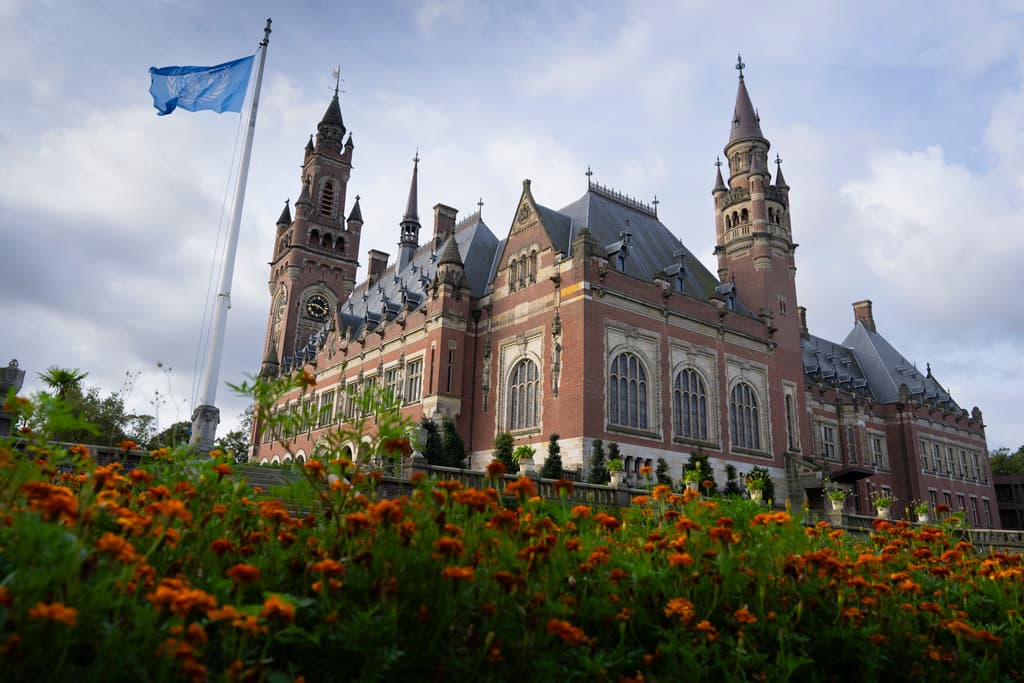With More Countries Joining South Africa in Demanding Israel Be Declared Guilty of Genocide, International Court Plans Hearings
Conducting a hearing so soon after announcing it is unprecedented, a former Israeli deputy attorney general says, adding that providing Jerusalem so little time to prepare a defense ‘could eventually hurt not only Israel, but the prestige of the court itself.’

The International Court of Justice wants another bite of the apple: Now that several countries are joining South Africa’s demand that Israel be declared guilty of genocide, the Hague-based venue is taking another look.
The ICJ will hold hearings Thursday and Friday to weigh last week’s request from South Africa “for the indication of additional provisional measures and the modification of measures previously prescribed by the Court in the case,” the United Nations-affiliated court announced Tuesday.
The most extreme “provisional measure” the court might try is ordering the Israel Defense Force to end all military activities, and to leave Gaza. Such an order is unlikely, though, and Israel’s compliance would be even less so. Yet, a growing chorus of Israel haters will lean on the Hague to do just that.
“Since we are not intent on genocide, I don’t think the ICJ would issue such an order,” a former legal adviser to Israel’s foreign ministry, Alan Baker, tells the Sun. The growing list of countries that have joined Pretoria, he adds, are doing so “as a political act” that should not influence the court’s decision.
Conducting a hearing a mere two days after announcing it is unprecedented, a former Israeli deputy attorney general for international law, Roy Sheindorf, tells the website Walla. Providing Jerusalem with so little time to prepare a defense, he added, “could eventually hurt not only Israel, but the prestige of the court itself.”
The Israeli government, which in January sent an impressive team of international jurists to the Hague, is yet to decide whether it will even attend this week’s hearing. In its request, South Africa is citing the IDF’s preparations to enter Rafah, where the Hamas terrorist organization’s remaining organized battalions are holed up.
President Biden’s publicly declared opposition to a major Rafah operation is seen by even harsher critics of Israel as a signal to join South Africa, and its call to declare Israel in violation of its obligations under the genocide convention.
South Africa is claiming that Rafah has become a “last refuge” for Gazans. As Israel is taking control of major crossings where international aid enters Gaza, and as it targets medical facilities, Pretoria also argues, the court must take measures to protect Palestinians from “genocide” — a word that is becoming globally ubiquitous.
On American campuses and in other parts of the world, protesters often cite the ICJ’s initial ruling, in January, on South Africa’s demand to declare Israel guilty of attempting to eradicate the Palestinian population. Similarly, the press often erroneously reports that the court ruled that Israel is possibly committing genocide.
“I’m glad I have a chance to address that,” a former ICJ judge, Joan Donoghue, who presided over the court when it issued its January ruling, told the British Broadcasting Corporation recently. The court, she said, decided that the Palesitnians have the right to be protected from genocide, and that South Africa had the right to address the issue at the Hague.
Yet, Ms. Donoghue added, the ICJ “did not decide — and this is something where I’m correcting what’s often said in the media — it didn’t decide that the claim of genocide was plausible.” So, she added, “the shorthand that often appears, which is that there’s a plausible case of genocide, isn’t what the court decided.”
Would it decide so now? Since January, several countries have joined South Africa’s push. This week, several prominent neighbors of Israel added their names to the list, which now includes 11 countries and regional organizations.
Citing “direct targeting of civilians and the destruction of infrastructure in the Strip, and pushing Palestinians to flee,” Egypt’s foreign ministry announced on Sunday that it would “formally join” the genocide case against Israel. Jordan did the same earlier and on Tuesday Turkey, too, announced it is joining Pretoria’s case.
“Just as it was wrong to execute innocent Jews in concentration camps, it is equally wrong to kill innocent Palestinian children in their beds with bombs,” Ankara’s foreign minister, Hakan Fidan, said in a statement Tuesday.
Israeli officials are incensed that their defensive war against Hamas, a group that calls for the eradication of Jews, is constantly compared to that of the Nazis. According to the International Holocaust Remembrance Alliance’s definition, which was endorsed by the Department of State, the act of “drawing comparisons of contemporary Israeli policy to that of the Nazis” is antisemitic.
Marking Independence Day on Tuesday, few Israelis paid attention to the latest maneuvering at the Hague. If the ICJ rules, as is likely, that Israel must do more to protect Palestinians and increase aid to Gaza, Israel would likely retort that it is already doing so. Meanwhile, even as all ICJ decisions are binding, they are unenforceable — and are often ignored.

